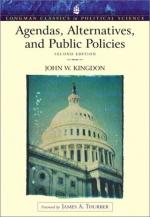|
This section contains 2,495 words (approx. 9 pages at 300 words per page) |

|
The prohibition of drugs is a relatively recent phenomenon in the history of the United States. During the nineteenth century, the federal government applied a laissez-faire philosophy to drugs and asserted no control over their manufacture or consumption. Americans interpreted the U.S. Constitution strictly, believing that the federal government had limited powers and should leave the passage and enforcement of most laws to the states. As a result of this "hands off" philosophy, the companies that manufactured and sold addictive drugs were not regulated.
By the beginning of the twentieth century, however, many Americans had become addicted to drugs. Since the 1850s, morphine had been used not only as an anesthetic for use during surgery, but as a routine pain killer. Morphine use was particularly common among Civil War veterans who had received the drug during and after surgery. Many continued to use morphine for chronic severe...
|
This section contains 2,495 words (approx. 9 pages at 300 words per page) |

|



